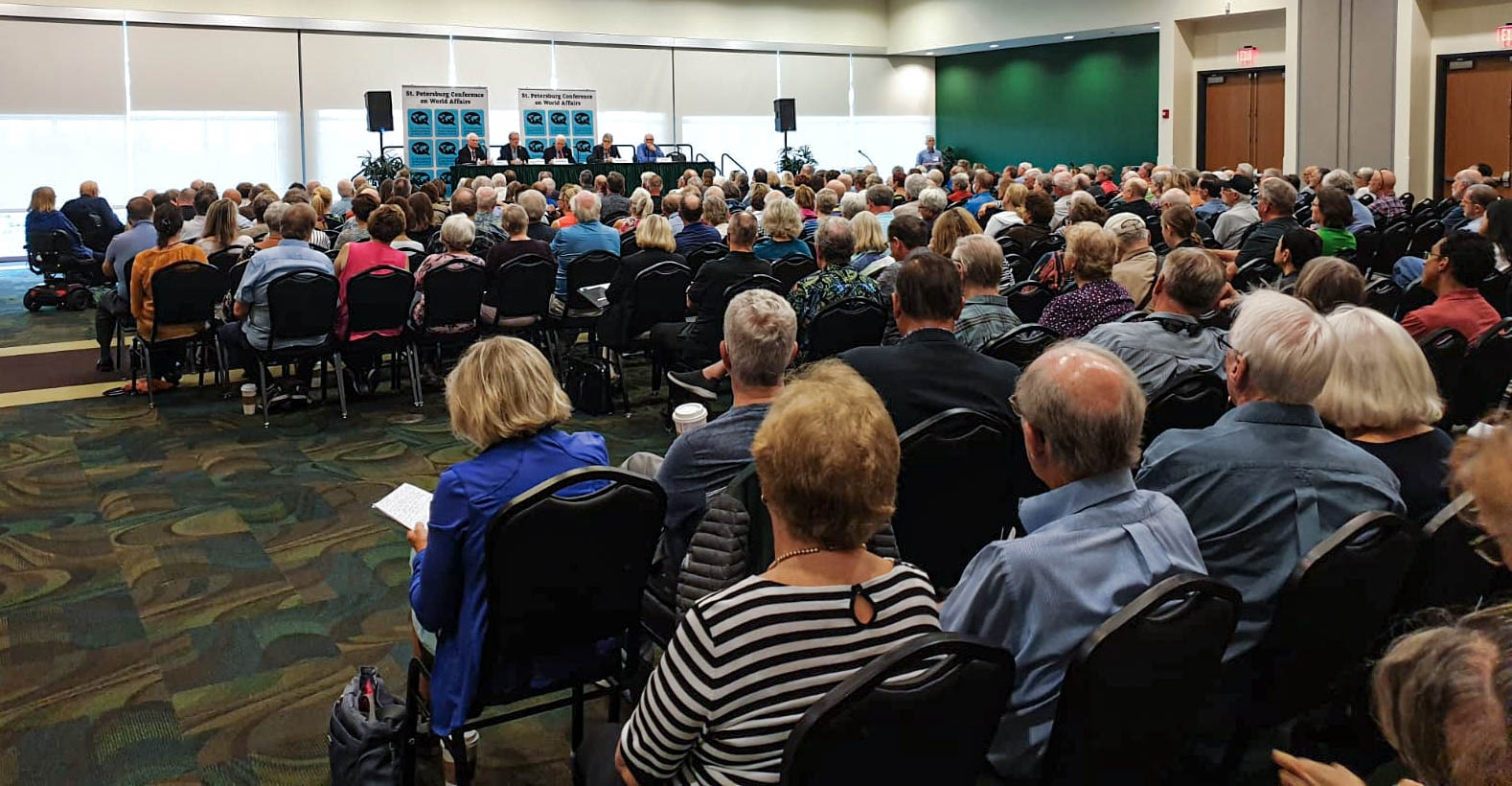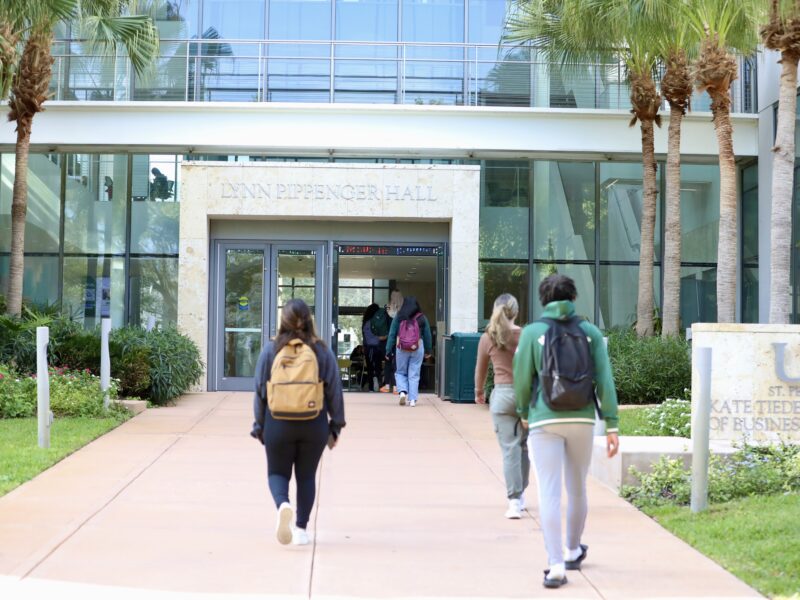More conservative voices were featured at the 8th annual St. Petersburg Conference on World affairs on campus last week.
Courtesy of Denis Thuin
By Catherine Hicks
In a show of bipartisanship, board members of the St. Petersburg Conference on World Affairs made a concentrated effort to include conservative voices in this year’s event.
The move was a response to anonymous comment cards asking attendees what they believed could improve the experience. One of the biggest complaints was a lack of conservative representation.
“It’s something we’ve been aware of for a few years, and we have made a proactive, concerted effort to look for speakers that could provide a more conservative viewpoint on certain issues, and I think we’ve been successful this year,” said Diane Seligsohn, conference president.
But responding to this view presented some challenges, Seligsohn said, including panelists who did not disclose their political views before the conference, as well as a predominantly left-to-center organizing team.
Despite the obstacles, board members embraced the importance of a diverse lineup.
“When you get all these different views on a panel, when it works, there’s this kind of magic about it that really forces everybody to make their arguments a little bit better and it forces the audience to really think,” said Dr. Thomas Smith, the conference’s co-founder.
“For (the audience) to come away a little more sophisticated about an issue, a little more skeptical about what they hear day in, day out… If we can do that through these diverse voices, we’re doing our job,” he said.
This year’s conference featured a total of 84 panelists, made up primarily of foreign service officers, journalists, professors, authors, board members on prominent nonprofits and retired government officials.
The experts spoke on 41 panels, with topics ranging from immigration, terrorism, civil protest, the politics of infectious disease, Trump’s re-election, the weaponization of social media and much more.
Many panelists did not divulge their political opinions and attempted to remain neutral in addressing politicized questions from the audience, such as “Should Donald Trump or Nancy Pelosi be thrown out?” and “Is the executive branch debilitating the state department, and how do we fix it?”
Bruce Eberle — a veteran, author, and the CEO of Eberle Associates, a mail campaign fundraising agency — was one panelist who expressed outright conservative views throughout the conference.
Eberle appeared on a total of six panels throughout the three-day event, one of which was a book signing for his novel, “Coming Home: How Black Americans Will Re-Elect Donald Trump.”
During one panel titled “Career Politicians: Deep State or Defenders of the Constitution?” Eberle received a question from the crowd about “his personal gain from defending a racist, xenophobic president.” His response — “The same could be said about any president,” — was booed by the crowd.
“I just don’t understand why in this society today we have to be enemies because we differ — because we disagree,” Eberle said. “Everybody has a different point of view, and it’s not even just there’s a point of view over here and a point of view over there; there’s lots of points of view in between.”
Panelists, sponsors, attendees and board members emphasized the value of intellectual diversity across the panels to broaden the viewpoints of not only the attendees, but also the panelists.
“I think one of the problems that we have, especially in this day and age, is that people get all their information from people who think like them,” said Andrew Arthur, a panelist and resident fellow in law and policy at the Center of Immigration Studies in Washington D.C.
“It’s very important to get views from people with different viewpoints in order to open their minds.”
This belief was further reflected by the attendees of the event, who expressed a desire to see the conference focus on being exposed to knowledge.
“I enjoyed the diversity of opinion,” said Nancy Schauer, a longtime attendee and recent sponsor of the conference. “I think it makes you reflect on that opinion that you already have.”
Despite an effort to include more conservative voices, some attendees didn’t feel the conference equally represented both ideologies.
“I like to see both sides of an equation,” said Barbra Kreis, a second-year attendee of the conference from southern California. “My personal opinion is that this year is more biased than last year. I thought last year was far more level, and this year was more biased.”
Although some attendees didn’t believe it was perfectly effective, board members expressed an interest and desire to expand the outlet of panelists in future conferences.
“It’s a question of a snowball effect as well,” Seligsohn said. “Once you have an ‘in’ with those speakers, they can introduce you to more people who might share their point of view.”



